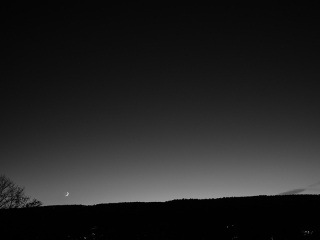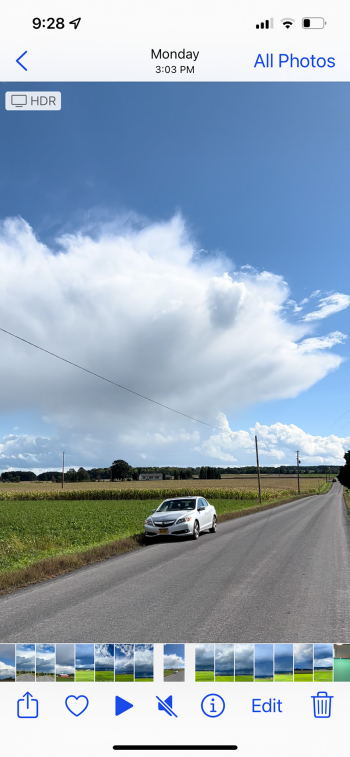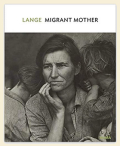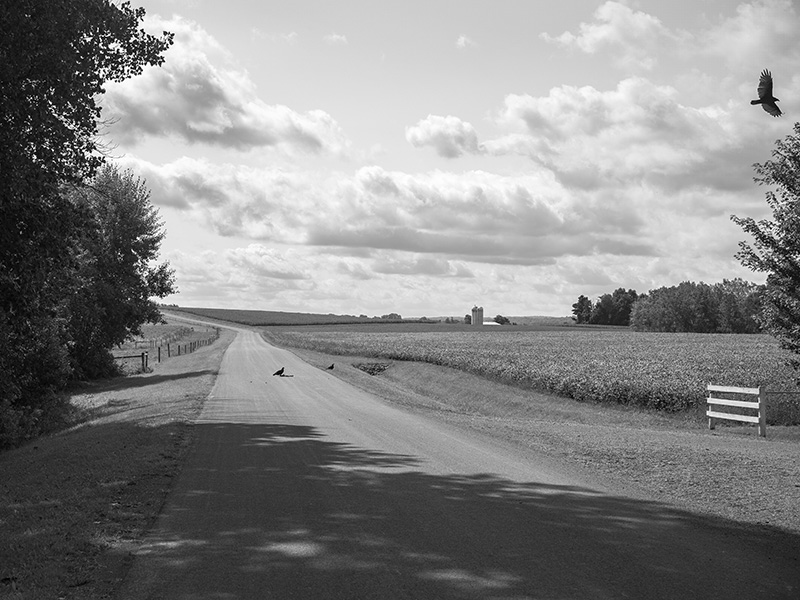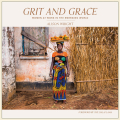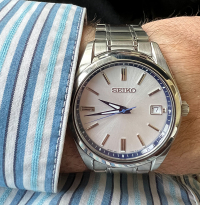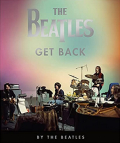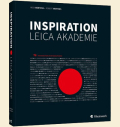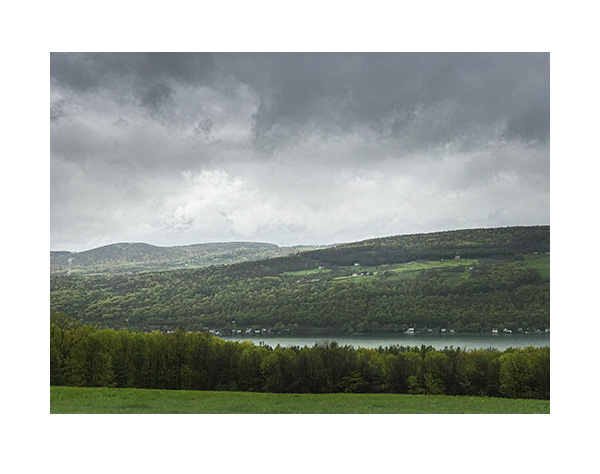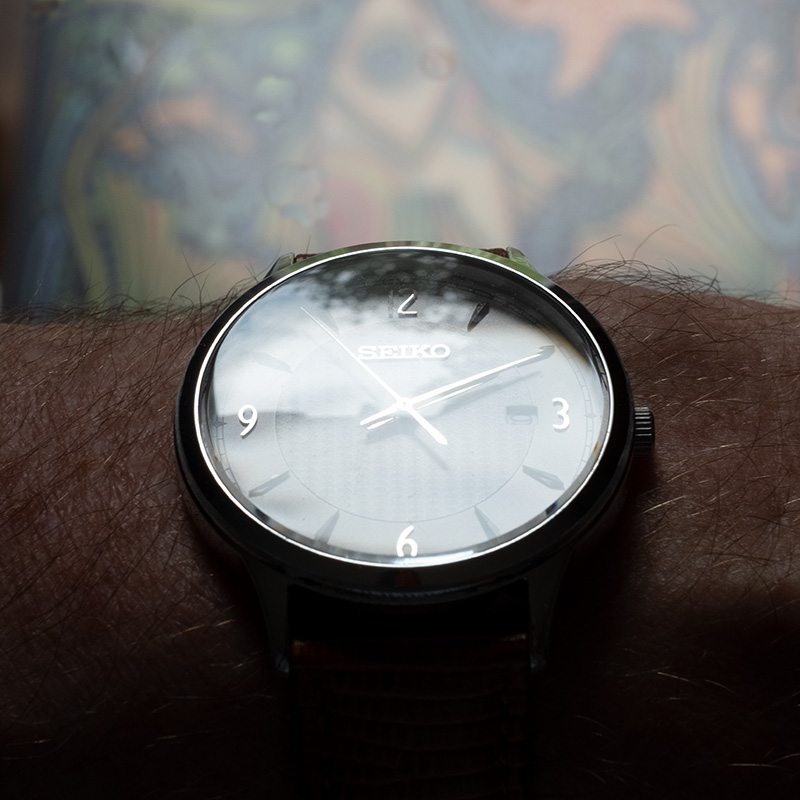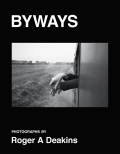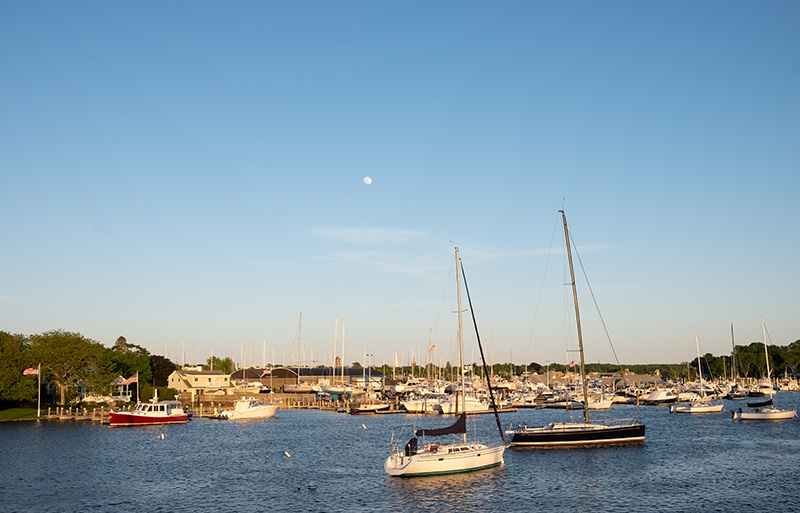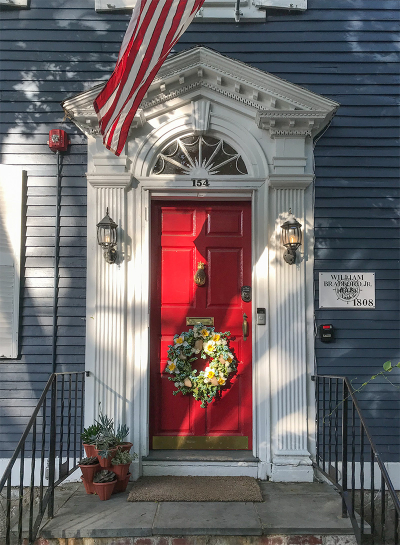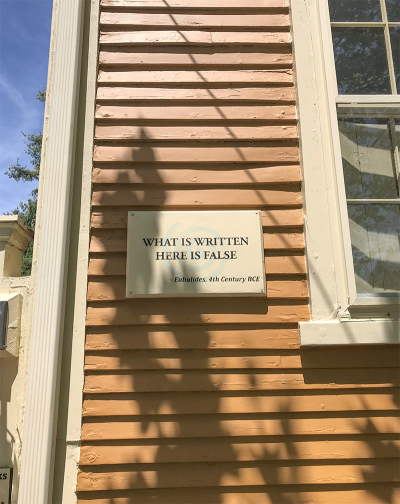Looking at photography in general, would you say its status and prestige in the culture is going up or down, or staying about the same?
Mike
My flickr page / My New Yorker author page
Original contents copyright 2022 by Michael C. Johnston and/or the bylined author. All Rights Reserved. Links in this post may be to our affiliates; sales through affiliate links may benefit this site. As an Amazon Associate I earn from qualifying purchases. (To see all the comments, click on the "Comments" link below or on the title of this post.)
Featured Comments from:
Richard Alan Fox: "Everybody is carrying a camera and an album everywhere at all times."
Ed Hawco: "I think the status of photography is going down. A few generations ago many people had cameras, but they were mostly just snap-shooters, and most of their snapshots remained unseen by most people. So for the most part, the photographs that the general population would actually see on a regular basis were created by working professionals and artists. That not only meant that the quality was usually high, but there was a sense of ratification and prestige around it. To have a photograph published, or hung in a gallery, was exceptional and a mark of high status.
"Now, everyone has a camera, and everyone is capable of creating high quality photographs (at least from a technical perspective), and of pouring sugar all over them in the form of one-button 'filters' from Instagram and other apps. So there's no prestige in having a photo published, because anyone with a social media account publishes photographs whenever they want. And there's very little sense of the 'exceptional' image—as in, one that people go back to over and over—as the tsunami guarantees even the most 'liked' images get about 15 seconds [that much? —Ed.] per pair of eyeballs and then it's on to the next.
"There might still be some prestige in getting a photograph published in a top-shelf publication, but that goes largely unnoticed by much of the population. (Signal to noise.) It's about as noticeable and prestigious as winning an oration or handwriting competition was in 1950. What's the big deal? Everyone talks, everyone writes...only a few people cared if the oratory or handwriting (quotidian activities for most people) was exceptional enough to win an award. Same applies to photography now, I think."
David Aiken: "There is a difference between 'losing its mojo' and the state of photography's status and prestige within a culture.
"The state of photography's status and prestige in the culture is changing just as the status and prestige of everything else is changing. Over time, existing artistic styles and genres lose status and prestige as they become 'old hat' while newer styles and genres gain status and prestige as they become accepted. Video is supplanting still photography as the main photographic medium these days.
"I don't think anyone reading The Online Photographer thinks that still photography has lost its mojo. On the other hand most of us are probably old enough to think that its status and prestige in our culture are on the way down. That doesn't mean we appreciate it any the less; it just means that we see younger people preferring different visual media than we do.
"Still photography will retain its mojo as long as people continue to make great still photographs, and I don't think that the standard of still photography is dropping. The standards of the past look high because we only see what's passed the test of time, and the standards of the present look lower because the stuff which won't pass the test of time is still around in abundance and the stuff which ends up passing the test of time is always only a small proportion of what is produced."
Dan Khong: "Photography has not lost its Mojo. What has changed is the methodology by which this Mojo is upheld. In film days, photography was held in higher regard because people could trust in photo evidence. Now, digital manipulation could alter and fake an image. That is the greater threat to the Mojo."
James J: "I think imagery has never been more popular. Snapshots have never been more popular. But AI will change the profession of photography forever and it started yesterday. We are very close to being able to relight a scene in post."
PaulW: "Down, and I say this because we're drowning in imagery and people are becoming numb to it. I also believe this is a big part of the reason for the fascination with AI generated imagery. Many people are looking for their fix and 'regular' photography no longer provides that."
Bahi: "Its status is falling as more people make it up the learning curve to a state of competence. I grew up in a household where two or three rolls of film a year covered all our requirements—birthdays, the holiday season, vacations, visits to and from friends and relatives—and can still remember being startled when, as a teenager, I heard Cindy Crawford explain on TV what made her favourite photographer so good. The gist of it: the photographer was special and unusual because he knew what exactly he wanted and was able to get it within the first few rolls. That’s why she liked him. I couldn’t get that idea out of my head for weeks—the first few rolls! Well, we all have a few rolls to burn now and frankly, it makes us better.
"The idea of photographing the mundane is unquestioned, too—teenagers have iPhone camera rolls filled with perfunctory pictures, encouraged by apps like BeReal, the name of which is (partly) a play on ‘B-reel,’ supposedly.
"But the popularity of photography isn't declining. It’s still special and, even if it’s taken for granted, it’s here to stay. Imagine in the 20th century the idea of SnapChat, an app used to send ephemeral photographs that just vanish after you've received them. I can’t bring myself to even look at it but it's part of photography now.
"Random observation: a young server at a restaurant recently told me my camera was enormous. It's a Micro Four Thirds camera with a tiny 15mm lens fitted—it's the smallest interchangeable-lens digital camera I've ever owned by some way.
"And another: tourist attractions were full of people carrying SLRs, then compact film cameras, then tiny digital cameras, then DSLRs and now…phones. It's all phones now, give or take. It's odd but it seems to work."
Khürt L Williams: "I don’t think about it. I’m too busy enjoying it."
kirk: "Is commercial photography prestigious? About as prestigious as a Walmart greeter in a red vest. If you aren't doing photography because you find it fun then I don't have a clue why you would pursue it in 2022. Seems like an old peoples' hobby now. Just look at the numbers. Camera sales = 7% of what they were at the peak of the digital craze (about a decade ago). Sure. Cellphones. But no prestige based on the pursuit of photography in any professional capacity. Prediction: Photography as a paid service will become a subset of graphic design and just as graphic designers had to learn typesetting after the demise of typesetting services they will learn the nuts and bolts of taking photos and then fixing them in post. A few photographers at the high end will continue to be successful but everyone else in the commercial field will also need to be a videographer, designer, production person and even...a writer. When is the last time you got invited to a big gallery showing of gorgeous black-and-white images? How are those fine art photography magazines doing? It's all a mess in transition. Again, do it because it's fun. No other reason I can think of...."
Doug Vaughan: "Photography is still important to most as a way of documenting life, but the methods are definitely different. I'm not a fan of video and not a big fan of cell phone photos but realize I'm in the minority. When our kids were young and we documented events, we always had to think about how much film we were burning up and what it would cost to have film developed. My wife and I were laughing earlier this week about how young parents have no idea what it means to be careful how many photos you're taking or waiting a few days to get them back from the drug store.
"From another perspective, a friend posted a photo of her horse a couple weeks ago, and I commented about how nice it was with amazing light. I assumed late light was streaming in through the barn doors. She replied that she used her iPhone 14 and was playing with the portrait mode and applied various lighting presets until she found one she liked. I was fooled."
Bear.: "A couple of anecdotes on which my answer is based:
a.) A colleague of mine attended on of my exhibitions recently—she's strictly a smartphone photographer for personal interweb consumption—and her immediate comment was, 'wow, you see the world completely different to me, I like it.'
2.) I accompanied a true artist friend (high-end bespoke jeweler) on a delivery run to a high-end retailer—I was introduced as a 'photographer' (which is not my day job, as she well knew)—which gave me (and her) far more kudos in a real-world high-end art market than if she gave the true(r) answer, 'lawyer.'
"I think that sums it up. Although the world is awash with pointless images for immediate and short term consumption, there is still a recognition of photograph undertaken as more permanent art. And, given the decline in non-smartphone photography, I think that status and prestige is up, not down due to increasing rarity value...."
David Drake: "I am not really sure what you mean by 'status' or 'prestige,' but I would say that the appreciation of what it takes to take a well-crafted creative image is likely going up. I think the more people there are who are taking photos the more awareness there will be that taking a 'good photo' isn’t easy."
